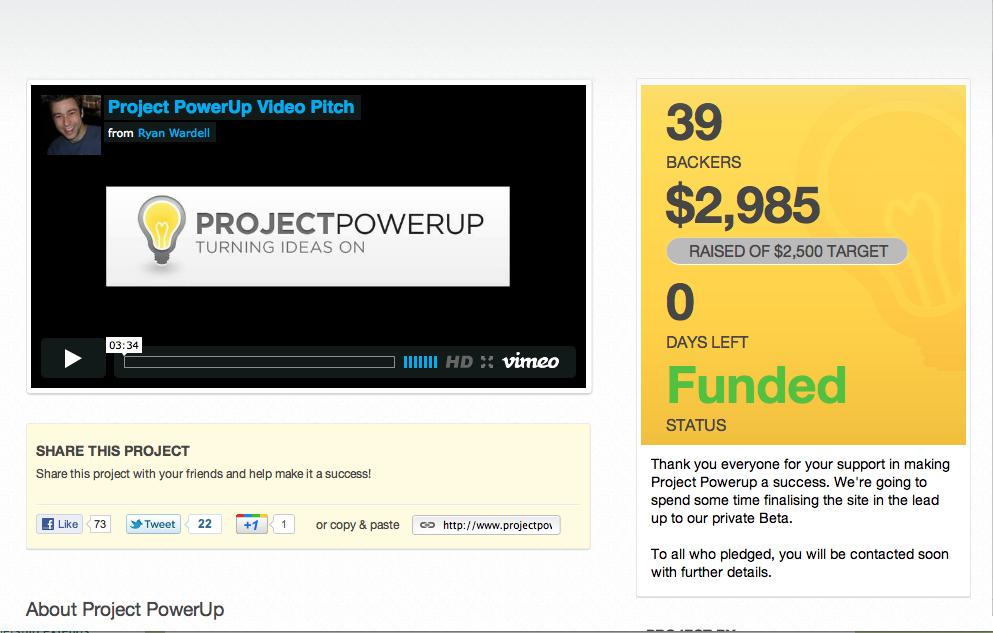Start-up eats its crowdsourced dog food

A website that allows start-ups to "crowdsource" funding for the business has successfully overcome its first hurdle: crowdsourcing the funds necessary to build the website.

(Screenshot by Mahesh Sharma/ZDNet Australia)
Crowdsourced funding is an increasingly popular way to raise capital by aggregating small contributions from a large number of friends, family and prospective customers (donors commit to provide funding but only pay after the target amount has been reached).
To date it has been primarily used by artists and was made famous by a group of developers frustrated by Facebook's closed nature and used Kickstarter.com to fund their open alternative Diaspora.
Sydney man Ryan Wardell believed the concept could be appropriated for local start-ups and so Project PowerUp was born.
But he hit a hurdle when he ran out of funds to complete the website development.
Applying the start-up mantra to prove your product works by "eating your own dog food", he launched a bare-bones version of the site to raise $2500 to finish the development.
Nerves set in when he was short of the target with days to go.
"Yes, I was a bit nervous," Wardell said. "However, nearly every crowd-funding campaign I've seen starts and ends with a bang — and goes a bit flat in the middle. This was no exception."
He said it taught him that the project requires constant promotion via press releases, Facebook and Twitter.
"It really reinforced for us that you can't afford to rest on your laurels ... Once you lose momentum, it's very hard to regain it.
"We lost a bit of focus and got distracted — and that's precisely when our campaign went flat."
This learning will be built into the platform, he said.
The money was the "icing on the cake" and the biggest benefit of the exercise was that the product could be tested from a customer perspective, revealing bugs they wouldn't have otherwise discovered.
The $2500 will be ploughed back into the site, which should be ready to go live on 17 October.
SWOT
Strengths
A proven concept being applied to an area where there is a definite need. No established competitors.
Weaknesses
Relies on the community to commit funding, which heavily depends on engaging and innovative start-up ideas that will need to be heavily promoted. Important to educate the start-ups and the community.
Opportunities
Other crowdsourced funding sites have remained niche (artists, products) and innovative technology could potentially be taken to the mainstream. Also there is a need to build the tools to allow anyone to use the service effectively.
Threats
Will fail if start-ups can't raise money or if they can't capture the imagination (and dollars) of the community.
Conclusion
The idea isn't revolutionary but the strength of this is the drive of the founder, Ryan Wardell. The fact that he passed the first serious step (eating his crowdsourced dog food) means it is already a success. It is an experience that will no doubt steel him for future challenges.
Verdict: BOOM